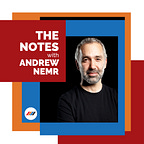Nature or nurture, chicken or egg, inherent or environment – these are common questions that come up as I have explored the area of individual and communal formation. We know that at least these two areas are at work. There is all the stuff that we become aware are working within us AND all the things that act upon us.
The stuff within us may include our personality, DNA, wants and desires, and our thoughts and feelings, for example. Environmental considerations may include key relationships like family and peer groups, physical environment, and cultural norms, for example. While spiritual formation often focuses on inner individual transformation it would be ignorant to deny the impact external considerations have on a person, even a community.
One example of the addressing of this concern come immediately to mind. In the book of Leviticus, we find specific laws around food, set in place for the people of Israel using the language clean and unclean. The eating of particular foods would make someone ceremonially unclean – they would not be able to partake in the spiritual ceremonies of the community. In this context there was established a clear connection between what went into the body and the spiritual state of that body. In other cultures, the explicit honoring of nature as medicine, stories as indoctrination, and even oral traditions as a method to form members of the community all honored the power of external forces on the individual.
In the physical reality, this is true. What we do, and what we allow into our being, deeply affect who we become.
In the middle of a culture steeped in strict laws built up around this idea that what we fill ourselves with affects who we are, Jesus says that what comes out of person defiles a person not what they put in themselves. (Matthew 15:18-20)
They seem to be opposing views. On the one side what matters most is what we take in. On the other side what matters most is what comes out of us. I don’t think these are opposing views, but rather a matter of where we are looking to understand our formation. If everything one puts in themselves (reading, eating, listening, etc.) is good (considered clean), but what comes out of them is evil, what is the truth about the person?
Of course, I’m not talking about condemning someone on account of one evil word or deed, but rather paying attention to the right things as we judge good and evil in ourselves on our own journeys, and by extension are able to offer good judgement when asked of others.
The spiritual reality, that is the reality of the spirit operating within a person, that power which directs their actions, is most evident by the actions that person takes when they are acting instinctively – without “thinking.” What comes out of the person speaks of their spiritual disposition (either towards good or towards evil) more than their adherence to any particular law.
Here it may be instructive to look at the analogy of the cup. In this common analogy we are to see ourselves as cups, allowing water to fill us up. In this way, we may be filled with whatever is necessary for a given situation. Be filled with what is necessary for the context. Bruce Lee (a notable thinker in the field of formation), pushes the analogy further, recommending that we see ourselves as the water. Both have truths in them. In a very real way, the reality of the human experience is that we are vessels – filled with thoughts and emotions, desires and wants, experiences and responses. The analogy of the cup considers the rigid form of the person – that which doesn’t necessarily change but rather is filled. While the analogy of the water pushes us to see ourselves more from the perspective of that which fills us.
The analogies suffer when we consider them in light of any idea of good or evil. A necessary consideration if we actually want to become good people. The analogies are incomplete in that both water and cups have no inherent direction. If we assume the cup or the water to be good, we allow ourselves to be blind to a possible reality – that is that evil has stained the cup or that there is evil in the water. Again, I’m not advocating for any sort of condemnation on account of the realization that stains may exist or that we’ve somehow been filled with poisonous water. Rather, I am advocating for a context in which awareness of such things is the start of a beautiful, wonderful, and love-filled journey of transformation. Indeed, such awareness is necessary if any kind of transformation is to exist. Unlike inanimate objects like cups or water, we have direction, momentum, and energy towards action, whether conscious, subconscious, and unconscious.
Notably, Jesus also takes on the analogy of the cup to set forth his idea of what is most important with regards to the makeup of a person. Speaking to some of the most ardent observers of the Jewish Law of the time, Jesus said,
“Now do ye Pharisees make clean the outside of the cup and the platter; but your inward part is full of ravening and wickedness.” (Luke 11:39 KJV)
The outside of the cup here is the outward actions or behaviors, of a given person. The inward part is the inner world of the same person. Here we must ask the complimentary question of where we started: If everything that someone does is good, but their inner world is full of evil, what is the truth of the person?
There now seems to be three areas to consider: What is already inside us, what we take in, and what comes out of us. I want to focus on what we take in – as I’ve talked a lot about the other two areas in the past. There is a physical reality and a spiritual reality to deal with here. Also, notably there is a connection between the two that we will have to consider. Let us address the physical reality first.
Consider a person form whom their general food intake is filled with poison. The physical end of that person will be worse than someone for whom their general food intake is good. There are many voices that will argue over what the best diet for every human is. We can do well in this area to consider what all those voices actually agree on (the agreed upon good) and begin from there. The main consideration here is that there are good things that we can put into our bodies. These good things will allow our bodies to thrive with greater ease than if we took in other substances.
Similarly the activities which we press our bodies into service may have similar affects. These may be thought of as the physical experiences we let into our lives. Some activities help our bodies thrive while other activities can be a detriment to our physical health. Again here, there may be plenty of personal perspective that is necessary to make good decisions. For instance, considering running a marathon tomorrow may not be the best decision for someone who has had little exposure to high levels of physical exertion over the course of their life. This doesn’t mean that physical movement is inherently evil because the likelihood of injury is high for the person in our example. Nor that being sedentary is inherently good because it would avoid the likelihood of injury that a marathon would incur in our example. No, within reason for each individual case, we can hold movement to be good for it reminds the physical body of what it can do, and rest from movement to be good for it honors the exertion of energy that movement requires.
In the spiritual realm there are similar considerations. One of the most spiritually formative things we take in are ideas. These ideas need vehicles by which to be communicated. The vehicles are often stories, music, or other kinds of art and art making (by way of oral traditions). In the modern popular culture, film, television, and online videos, have taken the place of communal storytellers even communal religious leaders. Music continues to be pervasive, while oral traditions are more limited. The media and activities are served most often through the market – even this platform – not an inherently evil thing as many might propose. Rather the reality of the market is that ideas which aren’t necessarily good for the formation of humanity can actually find a successful vehicle and pervade the popular consciousness.
Of course, the media that is made and the activities that are produced exist on a spectrum of good and evil, as they are created by people (each of us) in whom good and evil operate. So, what can we do?
Consider this reality. If all the stories we listen to are based on the idea of a good life that is highly efficient, poised towards market success, and high achieving then we may begin to direct our lives toward those goals. If we consume images and stories that are filled with death and destruction, we may come to see those things as normal, rather than a consequence of the evil that is operating in the world. Indeed, the ideas that we swim in, those that try to get in (think advertising), and those that we let in consciously have great sway on the formation of our thoughts and feelings.
While living in a culture that is saturated by media and the potential for full calendars, what is there to do? For ourselves, we have great power in the choices that we make in this area. We can curate the media we surround ourselves in and the activities that we take part in. We can make choices to fill ourselves with particular ideas that we know to be good – even to make the primary work of our day the working out of those ideas. We can attend activities that are poised toward goodness – in which we see expressions of life that we know to be good like peace, joy, self-composure, for example. In doing so we may become the kind of person for whom our presence in such things actually adds to the working towards good. We move from the disposition of a consumer to a contributor, from transactional to relational.
For our relationship with others, especially others who are also working towards a common vision of the good life – one in which love, faith, and hope thrive and expressions of joy, peace, kindness, and gentleness may abound – we can take Paul’s writing to heart.
“…but rather resolve this, not to put a stumbling block or a cause to fall in our brother’s way.” (Romans 14:13 KJV )
Check out, Asking the Questions for more pointed questions about these ideas, or leave a comment with what comes up for you.











